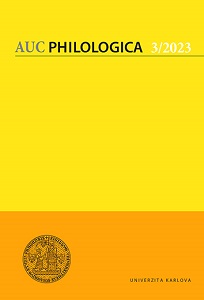Progress, Liberty and National Identity, or Outdatedness, Aristocratic Snobbery and Helpless Liberalism – Intellectual Attitudes Towards Georg Brandes in Hungary between 1870 and 1914
Progress, Liberty and National Identity, or Outdatedness, Aristocratic Snobbery and Helpless Liberalism – Intellectual Attitudes Towards Georg Brandes in Hungary between 1870 and 1914
Author(s): Anita Soós, Gábor Attila CsúrSubject(s): Language and Literature Studies
Published by: Univerzita Karlova v Praze, Nakladatelství Karolinum
Keywords: Georg Brandes; Austro-Hungary; reception history; press history
Summary/Abstract: For many centuries, Hungarian history and culture has been determined by both the country’s geographical position between “West” and “East” and its predominant desire to belong to the West. The concept of Hungary as an inferior culture on the periphery (which, however, managed to become an integrated part of Western Europe from time to time) at the very least stretches back to medieval sources. To compensate for the bitterness and unfulfilled demand to overcome the nation’s subjection to foreign powers, a great number of nineteenth- and twentieth-century political and cultural movements aimed towards gaining a more active and independent role in the region. In the 1880s and 1890s, the reception of the late 19th-century Danish literary critic Georg Brandes revealed new perspectives for Hungarian intellectuals and literary groups. When inspired by Brandes’s revolutionary thoughts and impact on Scandinavian society and literature, the goal of a broad-minded and modern Hungarian nation, as well as a successful breakout from a secondary role within the Austro-Hungarian Monarchy seemed closer at hand.
Journal: Acta Universitatis Carolinae Philologica
- Issue Year: 2023
- Issue No: 1
- Page Range: 31-41
- Page Count: 11
- Language: English

